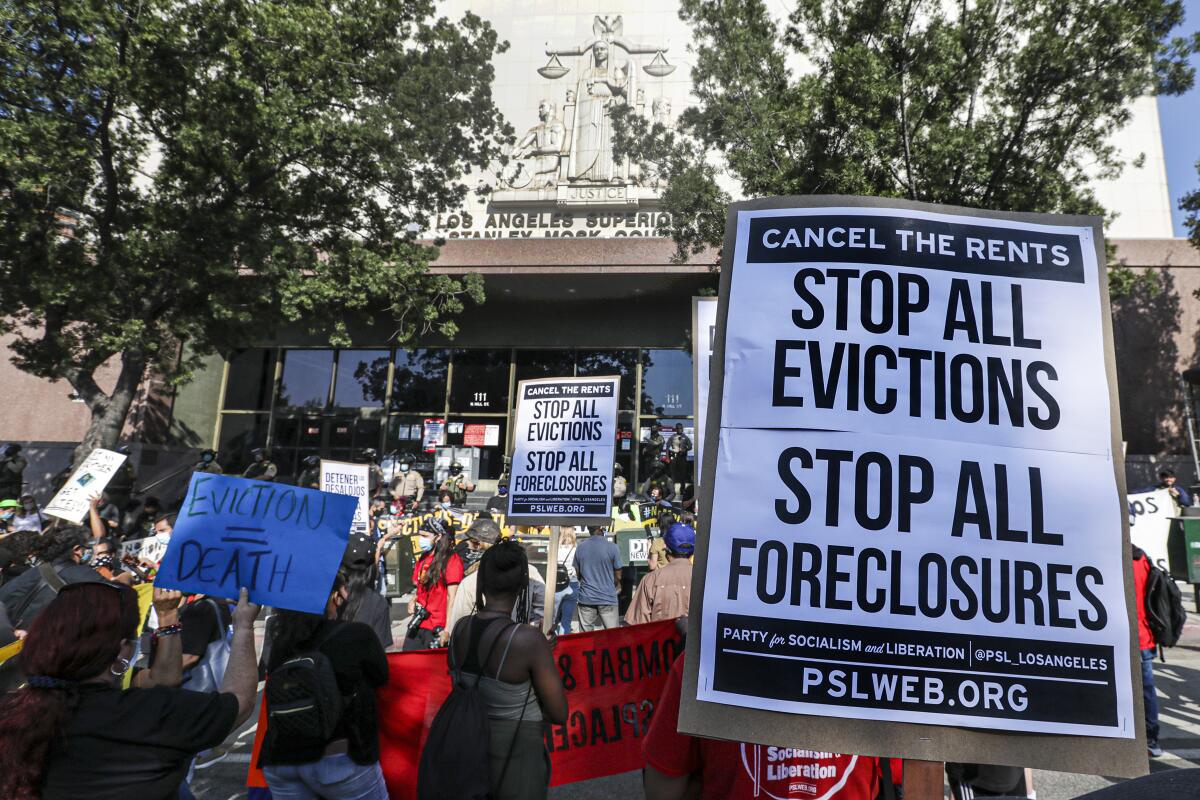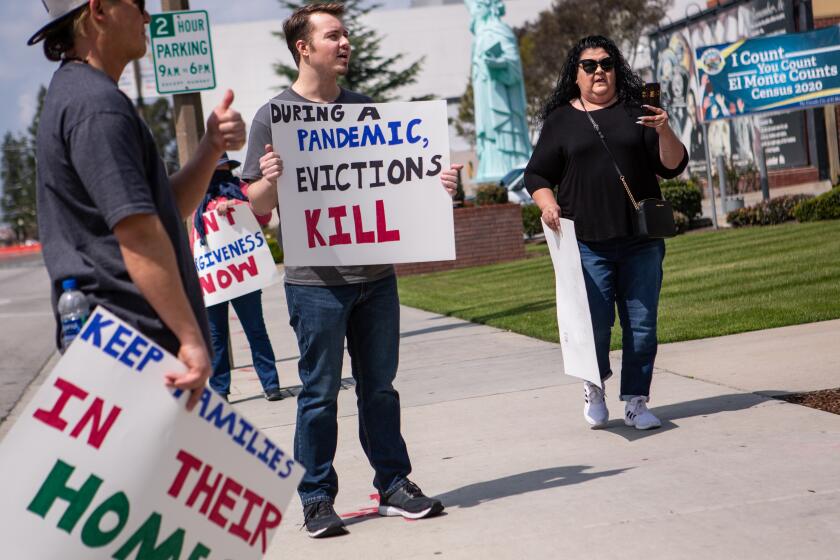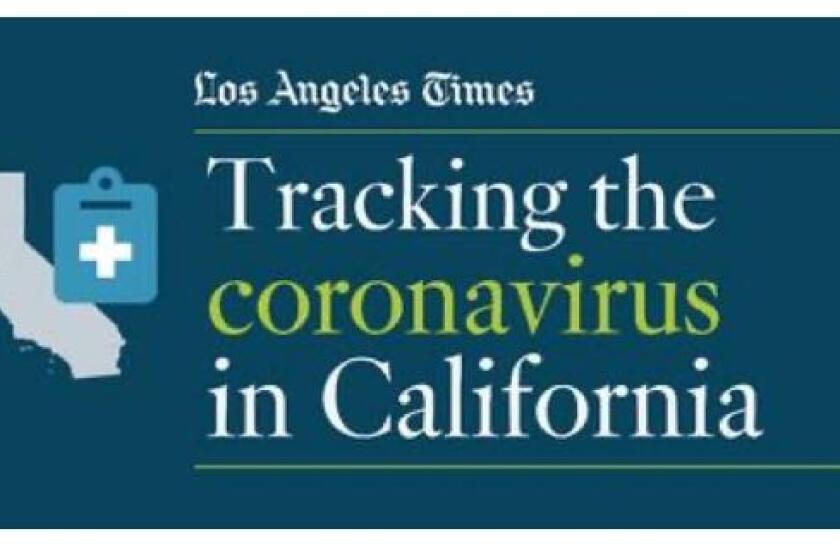Newsom proposes $600 payments to Californians in need and extending COVID-19 eviction moratorium

SACRAMENTO — With a state law protecting California tenants from pandemic-related evictions expiring at the end of this month, Gov. Gavin Newsom proposed Wednesday to extend the protections and expedite distribution of $2.6 billion in federal rental assistance for low-income tenants.
Newsom said the budget he will release Friday would include the rental assistance money and a $600 state stimulus check to low-income residents. Under the proposals, “Californians who have been impacted by this pandemic will get help to provide for their families and keep a roof over their heads,” Newsom said Wednesday.
Newsom said he wants legislative action on the two budget proposals this month.
Millions of Californians lost income when the COVID-19 pandemic began in March and resulted in state orders for people to stay home and businesses to reduce operations to curb the spread of the coronavirus.
Last summer, Newsom and the Legislature approved a bill that protected tenants from evictions through Jan. 31 if they are suffering financial hardship because of the pandemic and are paying at least 25% of their monthly rent.
Urgency legislation was introduced last month by Assemblyman David Chiu (D-San Francisco) to extend the protections, and Newsom said Wednesday that he supports an extension.
“California is staring down an eviction crisis, and we must keep renters in their homes,” Chiu said Wednesday. “Any way in which that is accomplished is good for California renters.”
A law protecting California tenants from evictions expires in two months. State lawmakers are seeking an extension until the end of 2021, citing continuing economic hardships.
Newsom did not say Wednesday how long an extension he would support, and a representative said that the plan is subject to negotiations with legislators. Chiu’s bill would continue the eviction moratorium for 11 months, until Dec. 31.
The governor told legislators during a videoconference call Wednesday that he is eager to see quick action on an eviction moratorium bill.
“We will get a deal done to extend these renter protections,” Newsom told the lawmakers.
Landlords are concerned about extending the eviction moratorium until December and want to make sure there is adequate financial help for property owners facing the loss of rental income, said Debra Carlton, an executive vice president of the California Apartment Assn., which represents landlords.
“Any extension must be short term and must come with added state dollars to help owners with the unpaid rent,” Carlton said Wednesday. “The federal dollars won’t cover what’s owed in California.”
The governor’s office said the $2.6 billion in federal rental assistance for low-income households in California will also help reduce the financial burden of small rental property owners who are struggling, including those who have not been receiving full rent payments from tenants.
The money and the tenant protections “will keep as many people housed as possible and help get California’s economy back on its feet,” the governor’s office said in a statement.
The governor also proposed Wednesday to provide a “Golden State Stimulus” that would refund $600 to 2019 taxpayers who received a California earned income tax credit in 2020, as well as to 2020 taxpayers with individual taxpayer identification numbers who are eligible for and receive the tax credit in 2021. Those receiving the payments would include immigrants in the country illegally who file tax forms.
Residents may be eligible for the earned income tax credit if they have annual incomes of $30,000 or less. Last year, 3.9 million eligible tax returns were filed.
The stimulus payments would be sent out in February and March to people who received the earned income tax credit in tax year 2019.
“The timing of these refunds is meant to immediately help low-income households with expenses like food and rent,” the governor’s office said.
Newsom announced the proposals during Wednesday’s videoconference call, which included Assemblywoman Eloise Reyes (D-Grand Terrace), who said the $600 stimulus check to low-income residents is essential to helping them make ends meet.
“It is clear that the economic consequences of the pandemic have devastated families across the state,” Reyes said. “We can and we must do more to provide assistance to get them through this difficult time, particularly those most impacted.”
The state stimulus checks will cost an estimated $2.4 billion. The proposal is in addition to a $600 federal stimulus check approved by Congress, so some low-income residents will get both, or $1,200, Reyes said.
More to Read
Sign up for Essential California
The most important California stories and recommendations in your inbox every morning.
You may occasionally receive promotional content from the Los Angeles Times.













